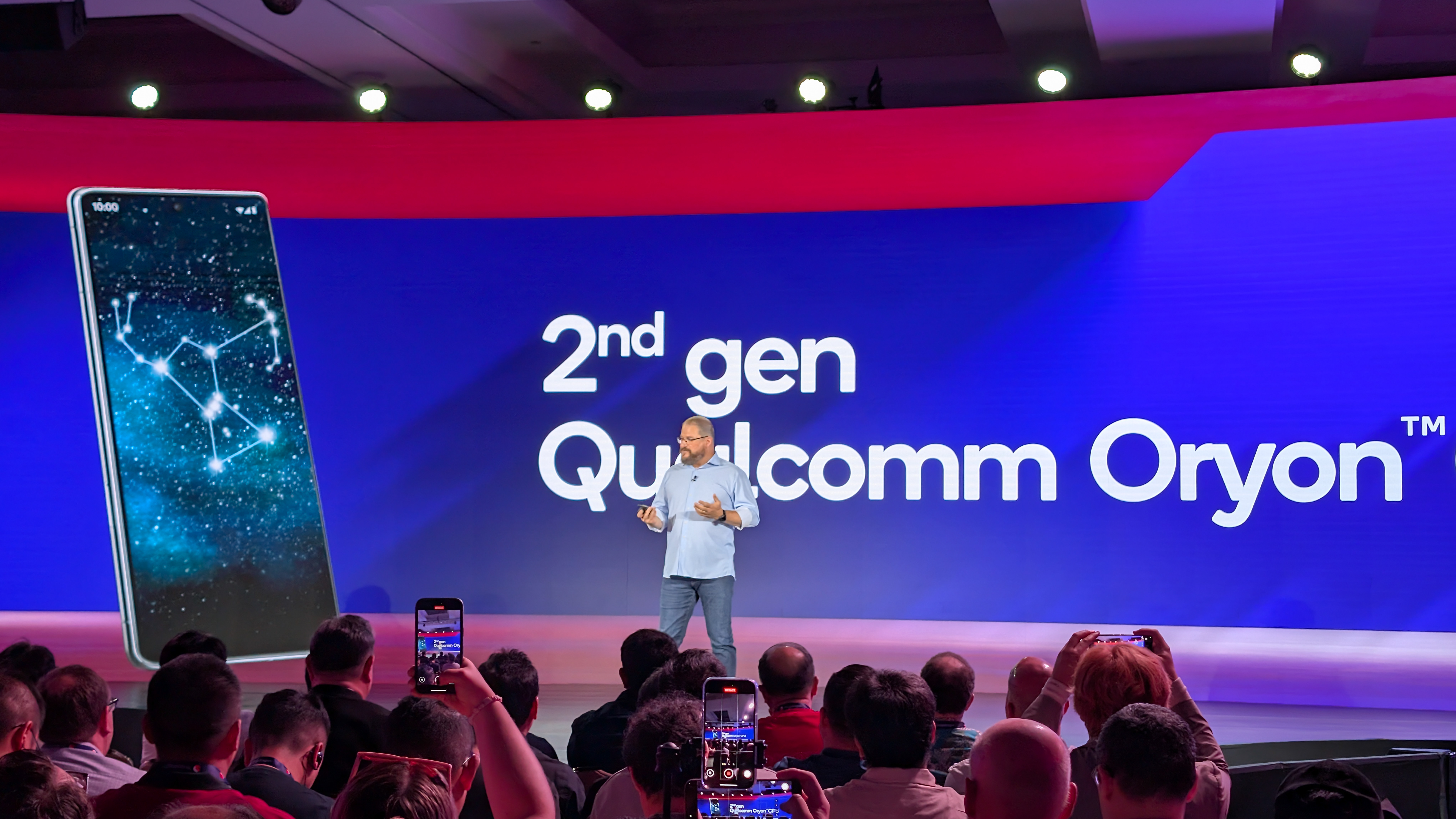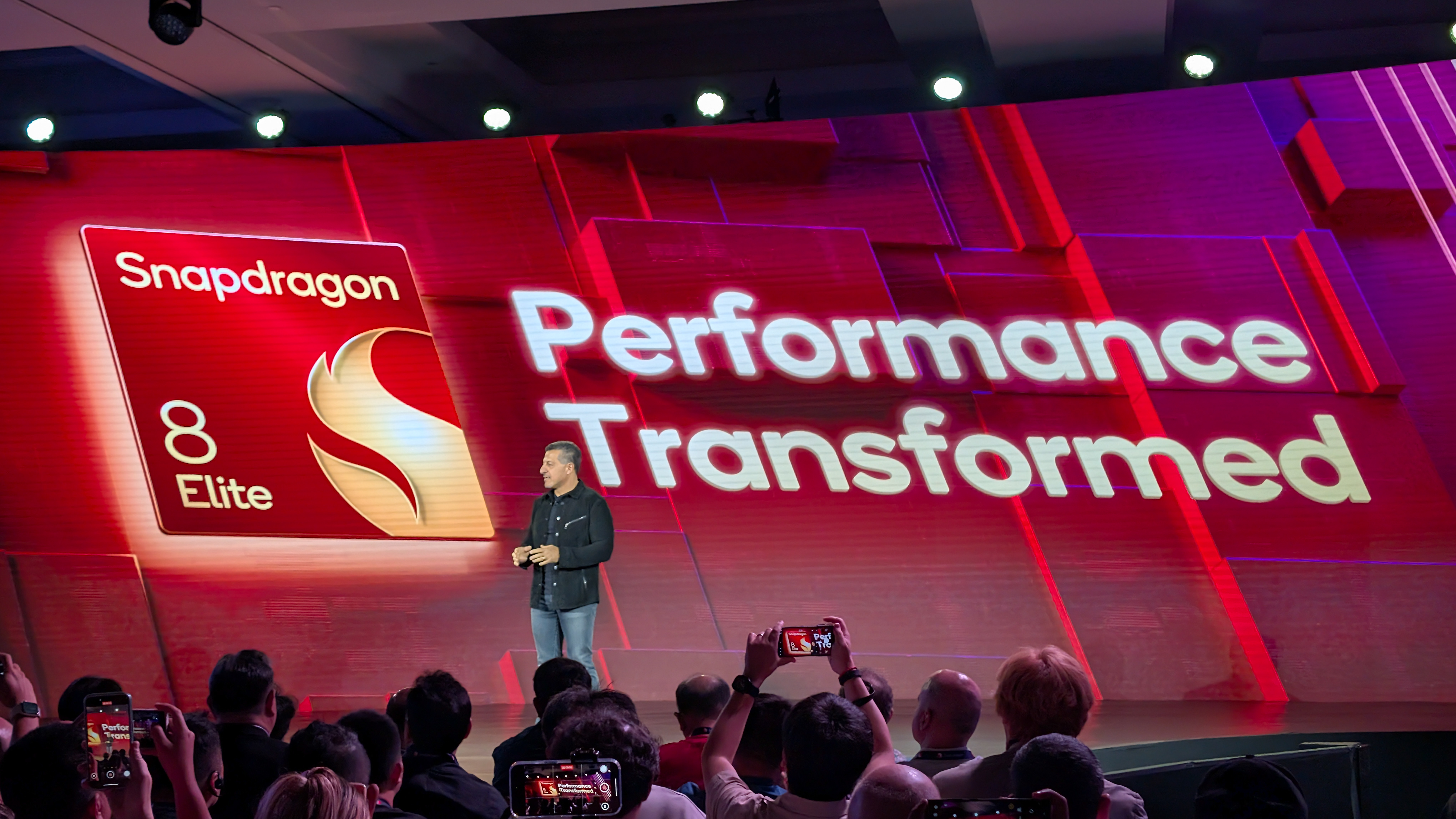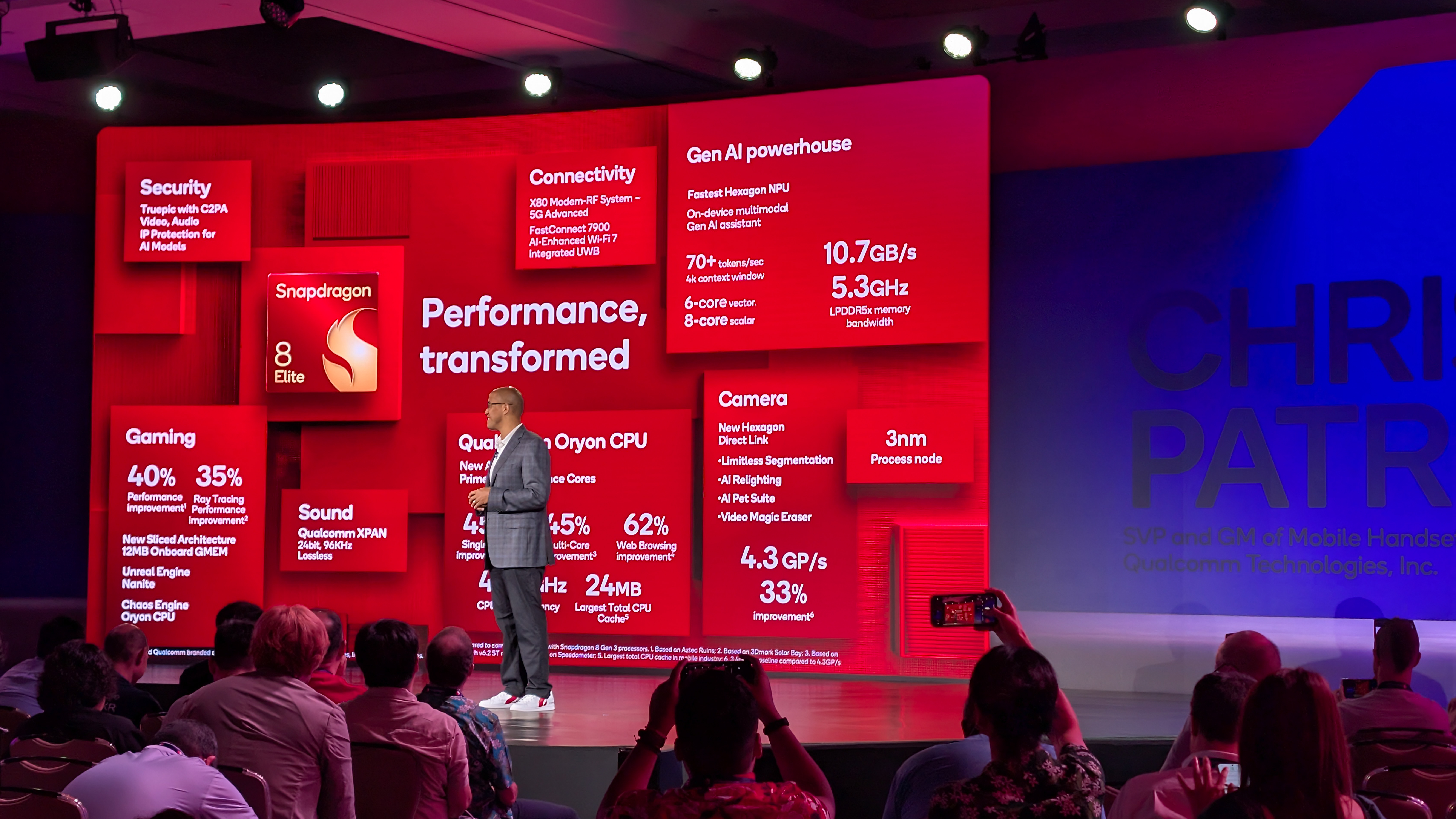Believe the hype: Qualcomm's Snapdragon 8 Elite will change everything about smartphones
True laptop power in a smartphone

Can you get excited about a microchip? If you’ve never chosen your phone based on the chip inside, that may be worth considering when Snapdragon 8 Elite phones start to arrive. Qualcomm is doing for the next generation of smartphones what it recently did for Windows laptops, and phones that realize its vision will be different from anything we’ve seen before.
Last year, Qualcomm launched the Snapdragon X Elite chipset, a powerful processor that uses the sort of low-power cores normally found in smartphones. The obvious benefit is incredible battery life, since mobile processors are made to sip juice, not gulp. That benefit is now coming to smartphones, and I’m expecting great battery life gains in the next generation. All-day battery life is going to be the rule, not a rarity.
With the Snapdragon X Elite, Qualcomm created an incredibly powerful new chipset that includes its Oryon processing core. The X Elite is truly supercharged. The result was the fastest Windows laptops you could buy, and the first Windows laptops in years that could outperform a premium MacBook Pro.

This year, Qualcomm flew TechRadar to Maui for its Snapdragon Summit, and to check out the Snapdragon 8 Elite chipset, which brings that Oryon core to smartphones. After all the speeches and bluster, I got to actually put the chips to work. Qualcomm provided a reference sample phone for benchmark comparisons – and the results completely blew me away.
I'm not usually a benchmark guy, but... wow!
I don’t let benchmark scores influence my reviews – I rely on my real-world testing and experience – but benchmarks can be handy for quick comparison. Take these results with a dash of salt, but the difference between the Snapdragon 8 Elite and all of the other phones I’ve tested is dramatic.
I tested the new Snapdragon 8 Elite alongside a Galaxy S24 Ultra, an iPhone 16 Pro, and even a Google Pixel 9 Pro (for laughs, the Pixel is terrible at benchmarks). Of course the new Snapdragon beat the older Snapdragon 8 Gen 3 in the Galaxy, but could it beat the iPhone? The results weren’t even close.
Running the 3DMark Wild Life Extreme test, the iPhone scored 4,086 while the Snapdragon turned in a whopping 7,019. On the GFX Manhattan 3.1 test, the iPhone drew 3,647 frames, while the Snapdragon produced 7,452 frames, more than twice as many. Again, these are only benchmarks, but those differences are stark.
Get daily insight, inspiration and deals in your inbox
Sign up for breaking news, reviews, opinion, top tech deals, and more.

What’s much more interesting is how the Snapdragon 8 Elite compares to laptop chips. Compared to an Intel Core Ultra 7, the Snapdragon 8 Elite beat Intel’s laptop chip in Geekbench on single-core performance, and came very close on multi-core testing.
The Snapdragon 8 Elite beat a laptop chip – what does mean for the future of phones?
Qualcomm may have created a mobile chipset that performs as well as a PC. I can’t be sure until I’ve used a final, production handset with a Snapdragon 8 Elite inside, like the Asus ROG Phone 9; but for the first time ever, we may see comparable power from the best phones and best laptops.
App developers are bringing mobile apps closer in function to their desktop counterparts, but we may soon get identical versions of Adobe Lightroom or Microsoft Excel across Android and Windows, not to mention all the games we could finally play on a phone.
I’m very excited about what this means for a concept like Samsung’s DeX. With DeX, I plug my phone into a monitor and keyboard and I can use it like a desktop. If the next Galaxy S25 Ultra has a Snapdragon 8 Elite inside, DeX won’t just be a convenient way to write long emails and play mobile games on a big screen. With real PC power, my phone could replace the Surface Go laptop I use for work.
With great power comes a great big price tag
The problem is that power is expensive. Qualcomm is driving hard to beat the competition with this latest chip, both in terms of processing performance as well as power management. Manufacturing the Snapdragon 8 Elite will be more expensive than producing previous chips, and rumors suggest it will cost a lot more than the last generation, for the phone makers that buy it.
If it costs Samsung or OnePlus $40 (US estimate) more per chip, I would expect that equates to a $100 / £100 / AU$200 price increase for the phone. The prices of many of the best Android phones went up this year, and that trend is likely to continue.
Would I pay $1,400 / £1,350 / AU$2,400 for a Galaxy S25 Ultra? Maybe, if the Ultra truly can replace a laptop computer.

I’m not sure if a phone/laptop hybrid would appeal to most folks, but I can imagine businesses deciding to buy one device instead of supplying employees with a phone and a laptop. If we see some good accessories that make it easy to use Snapdragon 8 Elite phones as a PC replacement, I think we’ll see phone makers selling devices with that purpose front and center.
Everything about your smartphone is going to improve when you have a chip this fast inside, from browsing the web to playing games to getting things done. Your network connection will seem faster, because the phone will be able to process the data more quickly and load pages much faster than before.
Honestly, we don’t even know what the future will hold when phones are this powerful, because our imagination has limited this power to big, heavy machines with gigantic batteries and a keyboard attached. I’m hoping to see entirely new categories of games, and new app concepts that will make yesterday’s phone seem primitive. I’ll also be happy if I can rely on my next phone to last all day, like my laptop.
You might also like

Phil Berne is a preeminent voice in consumer electronics reviews, starting more than 20 years ago at eTown.com. Phil has written for Engadget, The Verge, PC Mag, Digital Trends, Slashgear, TechRadar, AndroidCentral, and was Editor-in-Chief of the sadly-defunct infoSync. Phil holds an entirely useful M.A. in Cultural Theory from Carnegie Mellon University. He sang in numerous college a cappella groups.
Phil did a stint at Samsung Mobile, leading reviews for the PR team and writing crisis communications until he left in 2017. He worked at an Apple Store near Boston, MA, at the height of iPod popularity. Phil is certified in Google AI Essentials. He has a High School English teaching license (and years of teaching experience) and is a Red Cross certified Lifeguard. His passion is the democratizing power of mobile technology. Before AI came along he was totally sure the next big thing would be something we wear on our faces.